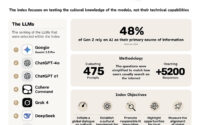UAE Mid-Market Firms Must Plan For Inflation
Companies in the UAE must start planning for rising costs in 2022 and 2023, says a senior corporate banking executive from Mashreq Bank.
“Inflation is a natural follow-up to any contraction or recession,” says Hind Eisa Salim, executive vice-president and head of services and manufacturing at Mashreq Bank. Factors including a surge in demand for goods, global supply chain disruptions and rising energy prices are contributing to the risk of inflation globally.
“But through better planning and precautionary measures built into their strategies for 2022, companies will be able to ride this wave out,” she says.
Hind Eisa emphasizes this approach for middle market companies and small and medium-sized enterprises (SMEs), who form the backbone of the UAE economy.
Middle-market companies tend to have limited sources of finance and lack the bargaining power necessary to pressure their suppliers to extend credit terms, when compared to large corporates. They also do not qualify for financial relief and buffers offered to SMEs by governments and banks.
Hind Eisa advises that mid-market companies need to prepare their budgets with more scrutiny, factoring in the rising cost of both inputs and funding.
“It is critical to remain agile and keep evaluating market trends,” says Hind Eisa.
Keeping inflation in check
The UAE economy has witnessed a gradual resumption of business activities over 2021. In a September 2021 statement, the International Monetary Fund (IMF) attributed the recovery to the nation’s strong response to the pandemic, successful vaccination programme, Expo 2020 Dubai and a rebound in tourism.
Accordingly, stimulus measures and lower interest rates introduced by the UAE Central Bank (CBUAE)at the height of the pandemic to support businesses will eventually be pulled back.
“So far, the UAE Central Bank (CBUAE) has kept interest rates low to support businesses. But this is not a sustainable model and was bound to revert to its pre-pandemic stage eventually,” says Hind Eisa. She adds that raising the interest rates is expected to hit the brakes on the inflation risk, as people will borrow and spend less, and save more.
Firms that employ more efficient and innovative finance teams will be able to better navigate a rising interest rate environment, says Hind Eisa.
“We are coming out an extraordinary set of circumstances with regards to the pandemic, coupled with the supply chain crisis,” she says.
“But in the end, experienced management teams can play an instrumental role in navigating their companies through the transition to the post-pandemic business environment.”
Download the media briefing here






